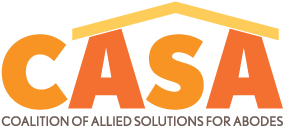News
Let’s Reimagine the Relationship Between Housing and Parking
As cities around the country continue to grapple with housing shortages and urban sprawl, it is crucial to reexamine the relationship between housing and parking.
The prevailing approach of abundant parking requirements has shaped Albuquerque, like other cities in detrimental ways, undermining affordability, exacerbating congestion, and hindering the development of vibrant, walkable communities. It is time for a paradigm shift towards a more sustainable and equitable future.
Most in our beautiful high desert city are probably unaware of a public policy which contributes to the housing crisis we are experiencing. Parking minimums, the regulations that mandate a certain number of parking spaces for each housing unit, have contributed to the rising costs of construction and housing. Ultimately, the burden of building and maintaining excessive parking spaces falls on local developers and residents, driving up housing prices. This diverts resources from creating more affordable and accessible housing options, perpetuating the housing crisis that plagues our communities.
An excess of parking spaces has fostered a car-centric culture, further entrenching reliance on private vehicles and contributing to traffic congestion and air pollution. Burque’s streets are congested with parked cars, while valuable urban space that could be utilized for parks, green areas, or affordable housing is wasted on accommodating vehicles. This misallocation of land and resources is a missed opportunity to create livable, pedestrian-friendly neighborhoods that prioritize people over cars.
To forge a more sustainable future, we must reimagine our approach to housing and parking. First, we should consider reducing or eliminating parking minimums, allowing housing developments to allocate their resources more efficiently. By embracing a more flexible approach, recognizing the diverse needs of different communities within the city, we can encourage developers to invest in housing projects that align with local needs and demands. We can not only reduce housing costs but also promote urban density and foster mixed-use developments that blend residential, commercial, and recreational spaces, creating vibrant communities where residents can live, work, and play.
It is essential to engage local community members and stakeholders in this transformative process. Through inclusive planning and community-driven decision-making, we can ensure that the voices of all residents, particularly those historically marginalized, are heard and considered. By embracing a collaborative approach, we can create an Albuquerque that is sustainable, equitable, and reflective of the diverse needs and aspirations of our neighbors.
In reimagining the relationship between housing and parking, we have an opportunity to shape the future of our cities. By prioritizing affordable housing, sustainable transportation, and community engagement, we can build cities that are vibrant, accessible, and environmentally responsible. Let us move beyond the outdated model of excessive parking and pave the way towards a future where our urban spaces are designed for people, not cars.
